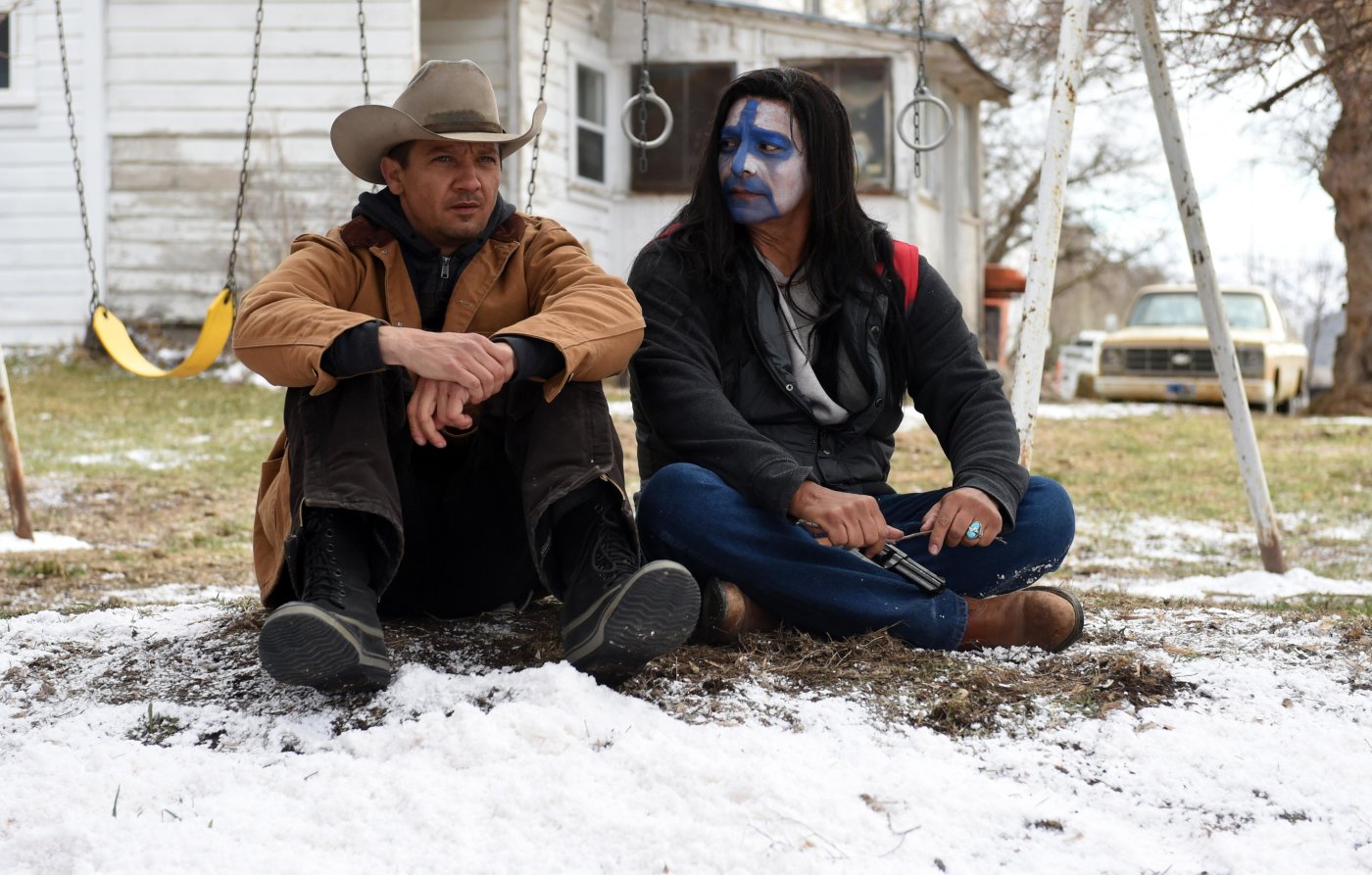REVIEW: 'Wind River' is more jarring than fluid, but it works
Elizabeth Olsen as Jane Banner and Grahame Greene as Ben in Wind River, directed by Taylor Sheridan.
There’s a final Mexican standoff in the finale of Wind River that has become instantly recognizable as director Taylor Sheridan’s work: tense and unflinchingly brutal. These gunfights are nerve-wracking and serve their purpose, such as in Sicario and Hell or High Water, but in the much slower and contemplative Wind River, it suddenly feels slightly out of place.
Set in Wyoming on the Wind River Indian Reservation, U.S. Fish and Wildlife Service agent Cory Lambert (Jeremy Renner) discovers the frozen corpse of Natalie Hanson (Kelsey Chow), and it’s quickly ruled a homicide by FBI agent Jane Banner (Elizabeth Olsen). With the help of the local Tribal Police Chief, Ben (Graham Greene), the investigation leads them to the dark corners of the reservation, from broken homes to drug houses to remote oil rigs.
The film is seen largely through Jane’s eyes, who is as far removed from her Florida roots and Las Vegas office as she can be. She’s ill-prepared for the cold weather, receives an even colder welcome upon her arrival, and immediately thrown into a completely foreign cultural milieu. Jane isn’t dissimilar to Kate Macer in Sicario, another overlooked female law enforcement agent who’s thrown into a chaotic situation that forces her to reorient her bearings and claw her way to the finish.
Jeremy Renner as Cory Lambert and Gil Birmingham as Martin Hanson.
Jane’s forced to learn quickly that life is difficult and harsh on the reservation, and that most of its residents have no real wants or needs, that life is about survival, and that the most dangerous element is the isolation that forces men to satisfy their basic needs simply by taking. It takes a winding road to reach its conclusion, but in a film which lingers with its shots and forces its characters to mumble through emotions and exposition, the final gunfight feels spliced in from an action film.
The film’s pacing is a lot better than Hell or High Water, but both films are ultimately buoyed by the performances of their lead characters. After a few missteps following Martha Marcy May Marlene, Olsen puts in a strong performance in a similar character who starts off naïve but completes a satisfying character arc. Renner isn’t quite a leading man, but he’s often very good as a supporting character, and his steely and detached demeanour is a nice contrast to Olsen’s occasional freneticism. Gil Birmingham, who teams up with Sheridan again following Hell or High Water, provides some nice quiet moments in a small role as Natalie’s father, Martin.
Banner and Lambert team up to crack the mystery.
I think Sheridan’s action sequences are effective because they’re very tense, very realistic, and comprehensible. There’s a reason for the violence and it makes sense. The border shootout in Sicario was brilliant, and while I had my issues with Hell or High Water, the gun violence was not one of them. In Wind River, it’s as if Sheridan decided to let the violence run loose in an attempt to deliver an explosive final act, but it also unfortunately distracts a very jarring reveal of the murder-mystery.
There’s also the problem of the film’s bad guys. There’s nothing less compelling about a bad guy who simply does bad things because he’s bad. The most effective antagonistic forces have goals and principles of their own, no matter how disagreeable they may be. In Sicario, the antagonists are the cartel, and there are obvious reasons why they exist. In Hell or High Water, the antagonists are also the protagonists. In Wind River, the bad guys are just bad, period. They’re a formidable opponent, but the motivations behind their actions are never made clear. They simply exist for the story to work.
I half expected the mystery to never fully resolve itself, since there was a strong, fatalistic Winter’s Bone vibe to the whole ordeal, but it ends up being tied up pretty neatly. There’s also a title card – always a risk and difficult to pull off – at the end that feels tacked on and preachy, and altogether unnecessary.
Sicario was successful enough to launch Sheridan’s career as a director and spawn a sequel, Soldado. Through three films I know what to expect from Sheridan now. They’re tightly wounded, mostly character driven, and also dependent on shock value. I hope the violence serves a higher purpose: to move the plot along and develop the characters, and not for it to become an event.
Wind River gets three stars out of four.




